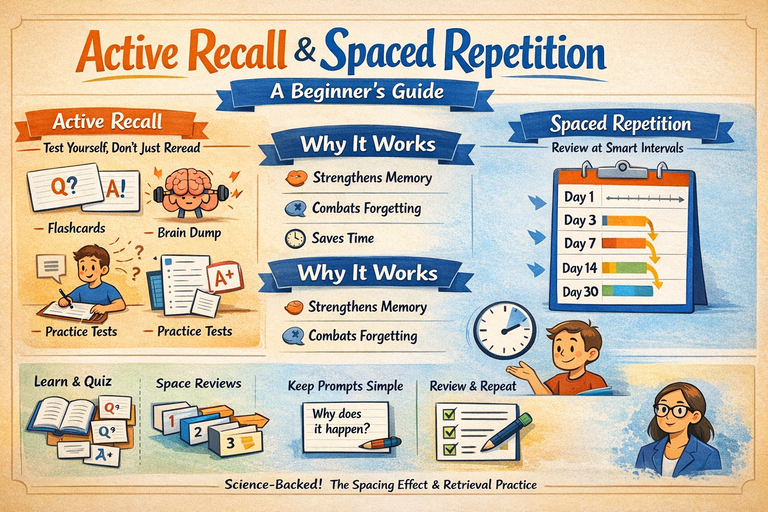Hiring a ghostwriter – tales of ghostwriting trainwrecks & how to avoid them
We’re going to talk about “trainwrecks” that occurred when someone hired a ghostwriter. Fun times await, below.
Ghostwriting can be a magical process. You take someone’s ideas, their voice, their story, and weave it into something polished, powerful, or even profound. But when it goes wrong? Oh boy, it can crash and burn in spectacular ways. From shoddy manuscripts to ethical scandals, ghostwriting disasters are more common than you’d think.
I’m going to present you with some jaw-dropping examples of what happens when the ghostwriting process derails, and sprinkle in a few tips to keep your project on track. Buckle up, bucko, it’s gonna be a wild ride.
This is fairly common: A client hires a ghostwriter for their dream memoir. They’ve got a gripping life story, maybe a tale of overcoming the odds, and they’re ready to share it with the world. They find a cheap writer on a freelance platform, lured by a bargain-basement price. Sounds like a steal, right? Wrong.
Weeks later, they get a draft that reads like it was written by a robot with no grasp of their voice or story. The tone’s off, the facts are jumbled, and it’s riddled with clichés. One client I heard about got a memoir back that turned their gritty, blue-collar upbringing into a generic rags-to-riches tale, like something ripped from a bad TV movie.
They had to scrap it and start over, wasting months and money. There’s a well-known acronym, so well known that literally everyone reading this knows what it is. The acronym: YGWYPF. If you don’t know what that means, Google it. The lesson? Going cheap often means getting burned. Vet your ghostwriter’s portfolio and talk to them directly to ensure they get you.
I run Ghostwriters Central, Inc. The writers I have under contract are the survivors of my screening process. I hear from a lot of writers. Maybe 5% survive to be issued a contract. They were selected for their writing skill, their client service attitude and dependability. All of them are located in the United States, which means they grew up speaking and writing idiomatic American English. We can handle writing your memoir or autobiography, novel or non-fiction manuscript.
It’s not just the budget writers who can tank a project. Even high-profile ghostwriters can drop the ball. These are the big names, the ones charging premium rates because they’ve got bestsellers under their belt. You’d think they’d deliver gold, but sometimes they’re stretched too thin, juggling multiple clients or passing work to assistants.
One business exec hired a renowned ghostwriter for a leadership book, expecting a masterpiece. Instead, they got a cookie-cutter draft that felt like it was pulled from a template. The ghostwriter barely spent time with them, relying on a generic questionnaire instead of deep-diving into their unique perspective. The result? A bland book that didn’t reflect the client’s vision. If you’re shelling out for a top-tier writer, demand real, live access, whether it’s Zoom, FaceTime or in-person, to ensure they’re invested in your story.
Now, let’s get into some darker territory: the ethical quagmires of medical and scientific ghostwriting. This is where things go from messy to downright harmful. Pharmaceutical companies have been caught hiring ghostwriters to draft articles that hype up their drugs while glossing over risks.
Example 1: Merck and its drug Vioxx. Court documents later revealed they paid ghostwriters to produce journal articles that downplayed the drug’s heart risks, slapping the names of respected scientists on them for credibility. Those scientists? Often barely involved. When Vioxx was yanked from the market in 2004 over safety concerns, the fallout exposed how these ghostwritten pieces misled doctors and patients.
Example 2: The case involved Wyeth, which used ghostwriters to churn out articles promoting hormone therapy drugs, touting unproven benefits while minimizing cancer risks. These papers shaped medical opinions and prescriptions, with real consequences for patients. The fix? If you’re in a field like this, demand transparency. Journals now often require disclosures about who wrote what and who paid for it, so lean on those guidelines.
The publishing world has its own share of ghostwriting scandals, especially when transparency takes a backseat. Ever heard of the Vampire Diaries drama? Fans were livid when they learned the original author, L.J. Smith, was replaced by a ghostwriter because the publisher didn’t like her creative direction. The books kept coming out under her name, but the real writer was someone else.
Understandably, readers felt betrayed, and the lack of honesty sparked a backlash on platforms like X. It’s a reminder that ghostwriting works best when everyone’s on the same page about who’s doing what. If you’re a client, decide upfront how much credit (if any) the ghostwriter gets, and make sure your audience knows what’s up, if it matters to them.
Then there’s the plagiarism nightmare. Imagine hiring a ghostwriter for a novel, only to run the draft through a plagiarism checker and find it’s lifted from obscure blogs or old books. One academic client got burned like this when they hired a writer for a research paper. The draft was a patchwork of copied text, and they nearly faced academic sanctions when it was flagged.
Reputable ghostwriters, like those at top companies (ahem, such as us) and agencies, always run originality checks, but shady ones cut corners. Always ask for a plagiarism report before signing off on a project. It’s a small step that saves big headaches. In our case, writers are contractually prohibited from plagiarizing or using AI chatbots to write client projects.
Miscommunication is another disaster waiting to happen. A client might want a witty, conversational blog series, but the ghostwriter delivers dry, academic prose. Or they expect a thriller novel and get something closer to a cozy mystery. One author shared a horror story about hiring a ghostwriter for their sci-fi novel. They sent a brief outline, expecting a gritty, Blade Runner-style epic. What they got? A draft full of cheesy romance subplots and zero dystopian vibes.
How did that happen? The ghostwriter relied on a vague questionnaire instead of having a real conversation. The fix here is simple: talk it out. Schedule calls, share examples of the tone you want, and don’t assume a quick email will cover it. Platforms like Reedsy emphasize this, connecting clients with writers who prioritize collaboration.
In professional settings, like the military, ghostwriting can stir up ethical messes, too. Imagine a high-ranking officer publishing a glowing article about their leadership, only for it to come out that their staff wrote it to boost the boss’s ego. It’s not about the quality of the writing, it’s about the dishonesty.
There is an X post which described a commander taking full credit for a “legacy piece” their team wrote, which sparked resentment among the staff. When the truth leaked, it dented the officer’s credibility. If you’re ghostwriting in a professional context, make sure the goal is clear: is it to serve the organization or just polish someone’s image?
Transparency with all parties keeps things clean. Clients need to be clear about their requirements. Writers need to fulfill those requirements honestly.
Then there are the thieves. They usually set up a new website to market their writing services. These websites are attractive and polished. They offer super amazing discounts for writing and, usually, publishing services. They take your money and suddenly you can’t reach them.
I’ve had many calls from angry people who immediately begin shouting and making accusations. My first reaction is to find out if this caller is actually our client. It never is. The caller mistook our business name for that of the scoundrel. I try to be helpful. In each case, I try to identify the bad guys, and provide whatever other info to the caller that might be helpful in getting their money back. I traced one scoundrel outfit to Iceland, of all places.
Ghostwriters themselves can face their own disasters. Emotional ones. Picture pouring your heart into a project, only to see someone else’s name on it with you getting zero credit. One ghostwriter shared on X that after months of crafting a high-profile memoir, they felt “near suicidal” from the lack of recognition and control.
It’s a tough gig, staying invisible while delivering brilliance. Clients, if you can, toss your writer some praise, even privately; it goes a long way. And writers, be certain that you’re okay staying in the shadows, even if no praise is forthcoming.
Then there’s the fraud angle. Some “authors” hire ghostwriters to churn out books they claim as their own, only for the ruse to unravel. A self-help guru once got called out when their ghostwritten book was exposed as mostly the writer’s work, with the “author” contributing little more than a vague idea. Fans felt duped, and the guru’s brand took a hit. Honesty about the process, whether it’s a co-authorship or full ghostwriting, keeps trust intact.
Ghostwriting can be a beautiful collaboration, turning raw ideas into polished gems. But when it goes wrong, it’s a mess of wasted time, money, and trust. By choosing the right writer, communicating clearly, and keeping ethics first, you can steer clear of these disasters and tell the story you’ve always dreamed of. So, next time you hire a ghostwriter, take a deep breath, do your homework, and watch your vision come to life, without the drama. And wreckage.
By Michael McKown






